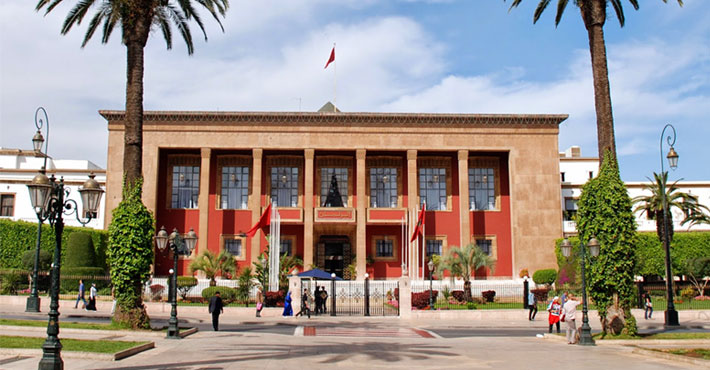The House of Representatives approved, within its plenary session held on Friday, three draft organizational laws framing the electoral system, in the presence of Morocco’s Minister of Interior, Abdelouafi Laftit.
Thus, the House of Representatives approved, by majority, the draft Organizational Law No. 05.21 on changing and completing the Organizational Law No. 28.1 1 related to the House of Councillors, stipulating that professional organizations with the highest majority (Patrona) shall preserve the right to a parliamentary team within the aforementioned institution, while ensuring its independence, in order to represent all economic actors and address the aspirations and expectations of enterprises, as well as contributing to the monitoring and directing of public policies.
Within the framework of unifying the new provisional regulations and circulating them to both houses of Parliament, the draft tended to cover the same amendments meant for the House of Representatives, with regard to strengthening the guarantees surrounding electoral candidacies.
By virtue of the above, the draft focuses on the provisions aimed at ensuring that elected candidates adhere to their affiliation to a given political party, trade union organization, or professional organization, throughout their entire parliamentary mandate term, in order to promote transparency all along their electoral campaigns, while holding them legally responsible for the support they shall benefit from in the process, by tracking down their campaign-related transactions from within the party or trade union organization to which they belong, as well as establishing a set of penalties against those subject to provisional violations.
Candidates have also been required to obtain a minimum of five votes from within their constituencies to enjoy full representation legitimacy, while membership within the House of Councillors has been deemed incompatible with presiding communal councils consisting of more than 300,000 people.
As for the second text approved by the House of Representatives (by majority), it mainly relates to the draft Organizational Law No. 06.21 on changing and completing the Organizational Law No. 59.11 related to the election of territorial communes’ members. This draft law includes amendments related to controlling the procedure for candidacy within prefectural and regional councils, with the emphasis on female representatives, as well as the introduction of new regulations related to the election of members within communal councils.
And, in order to promote transparency throughout communal mandates, the draft stipulates that communal council members who voluntarily relinquish their electoral mandates, by way of resignation, may not be re-nominated for membership within the same council, throughout the remainder of the same electoral mandate; however, they shall be entitled to run for membership within the said council during the general elections that follow.
The draft also adopts the proposed amendments with regard to the House of Representatives and the House of Councillors, in terms of ensuring electoral transparency, generalizing the requirements for obtaining a minimum number of votes to grant those elected full legitimacy, and confirming the validity of the nomination list upon the previously set deadline (provided any given candidate’s eligibility for elections).


